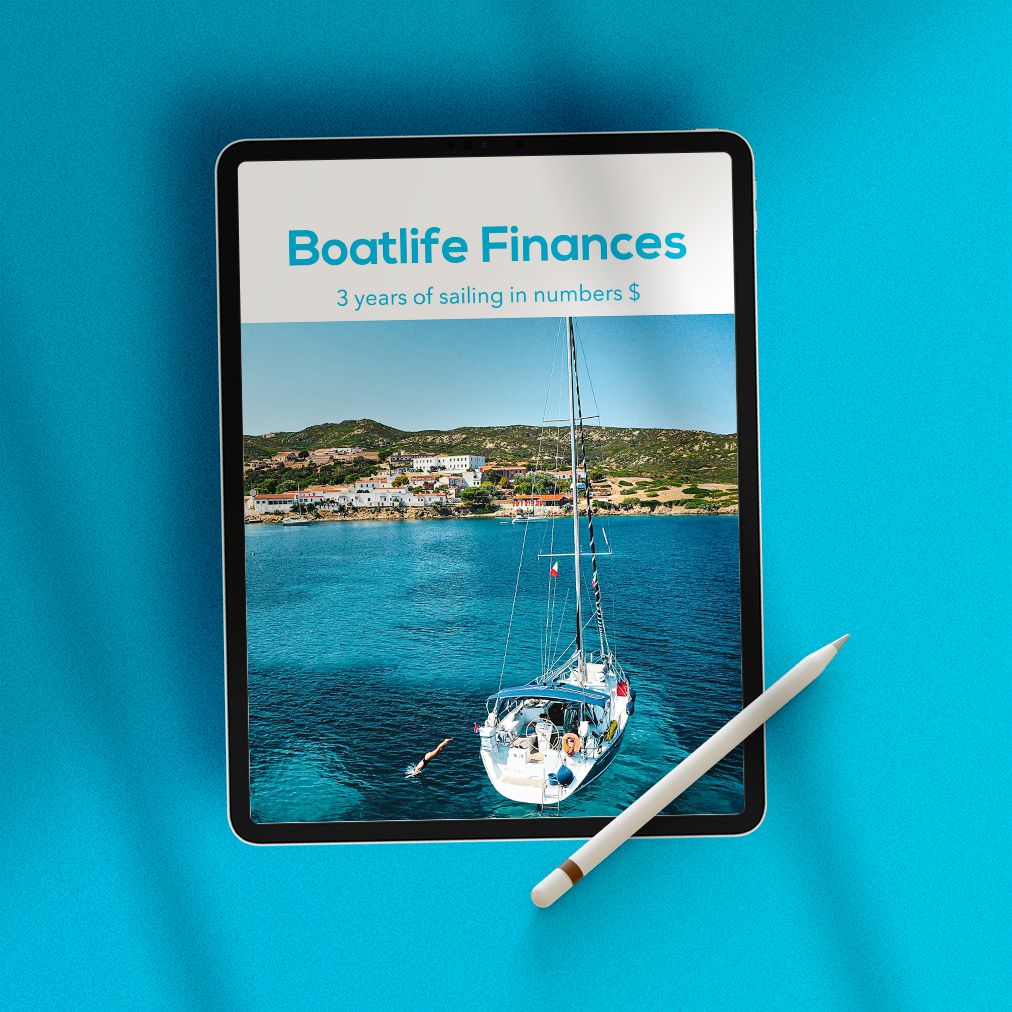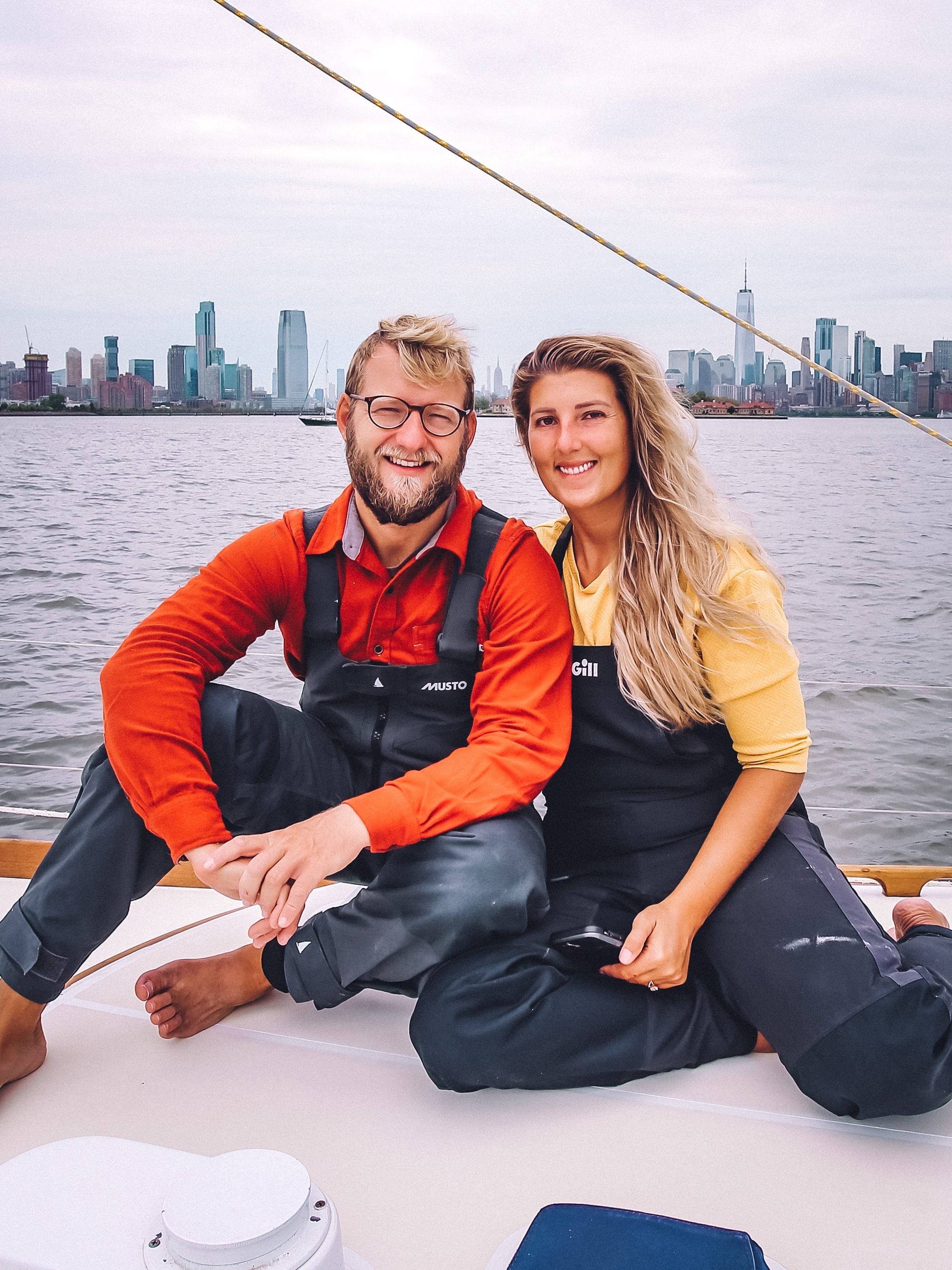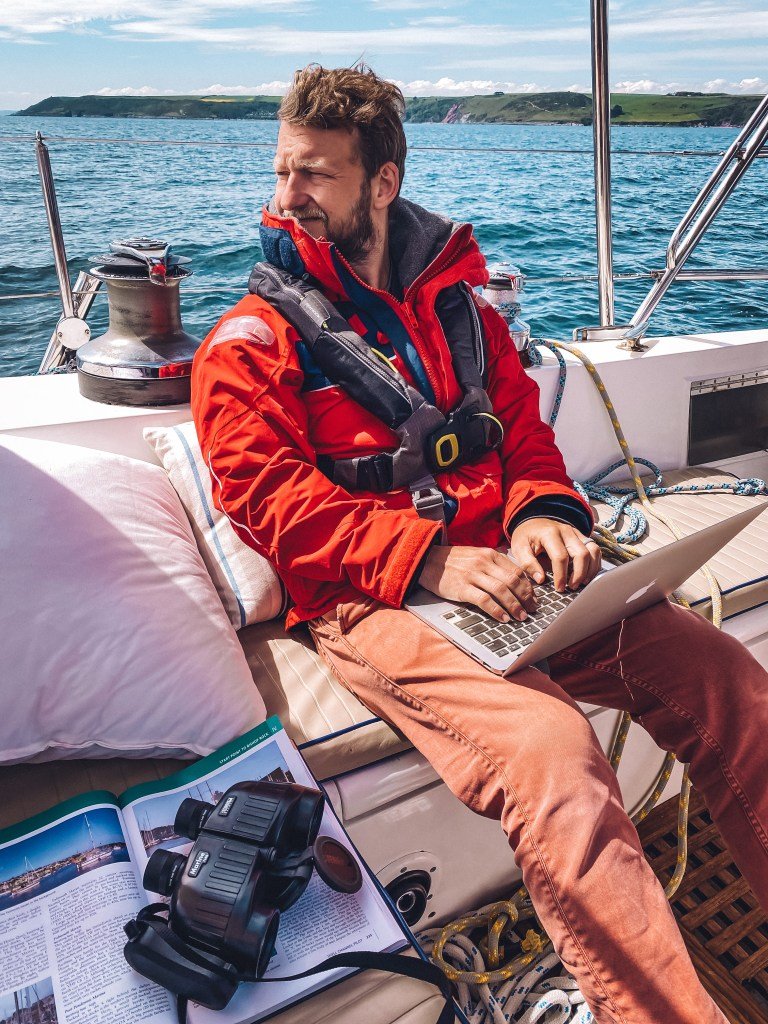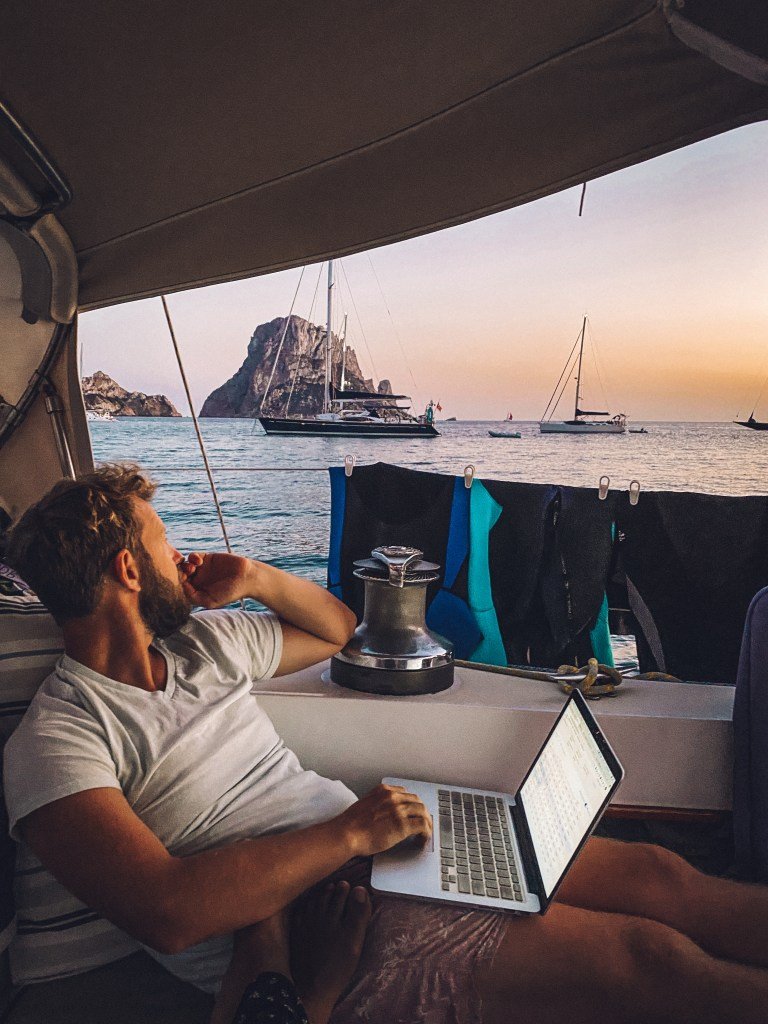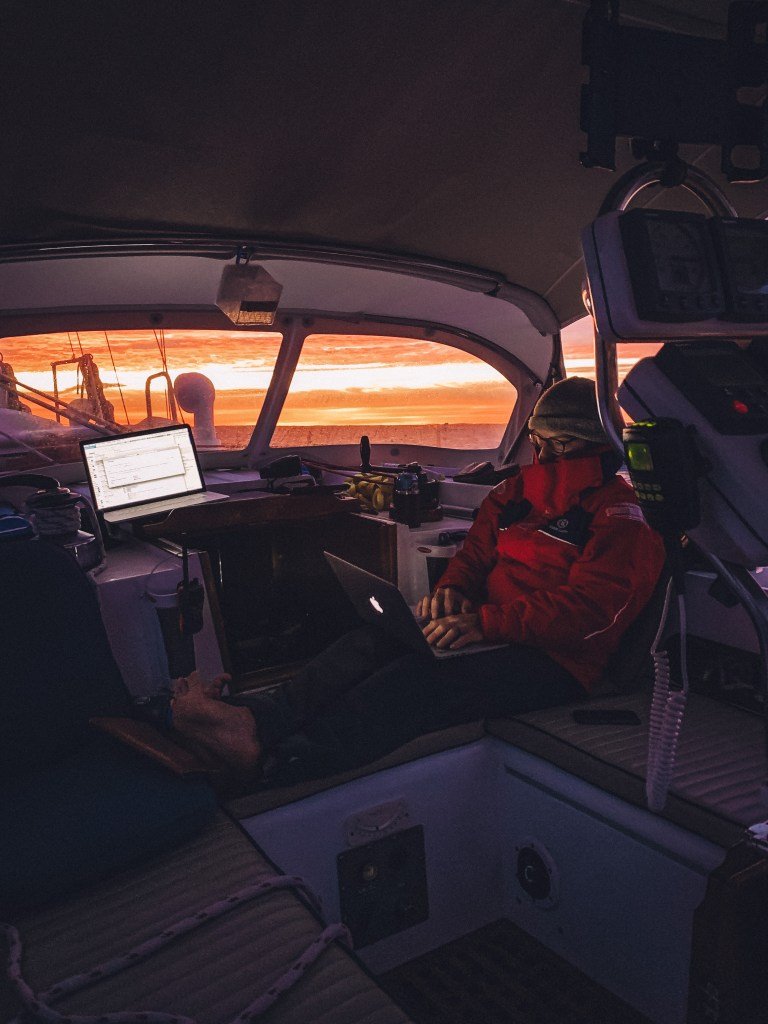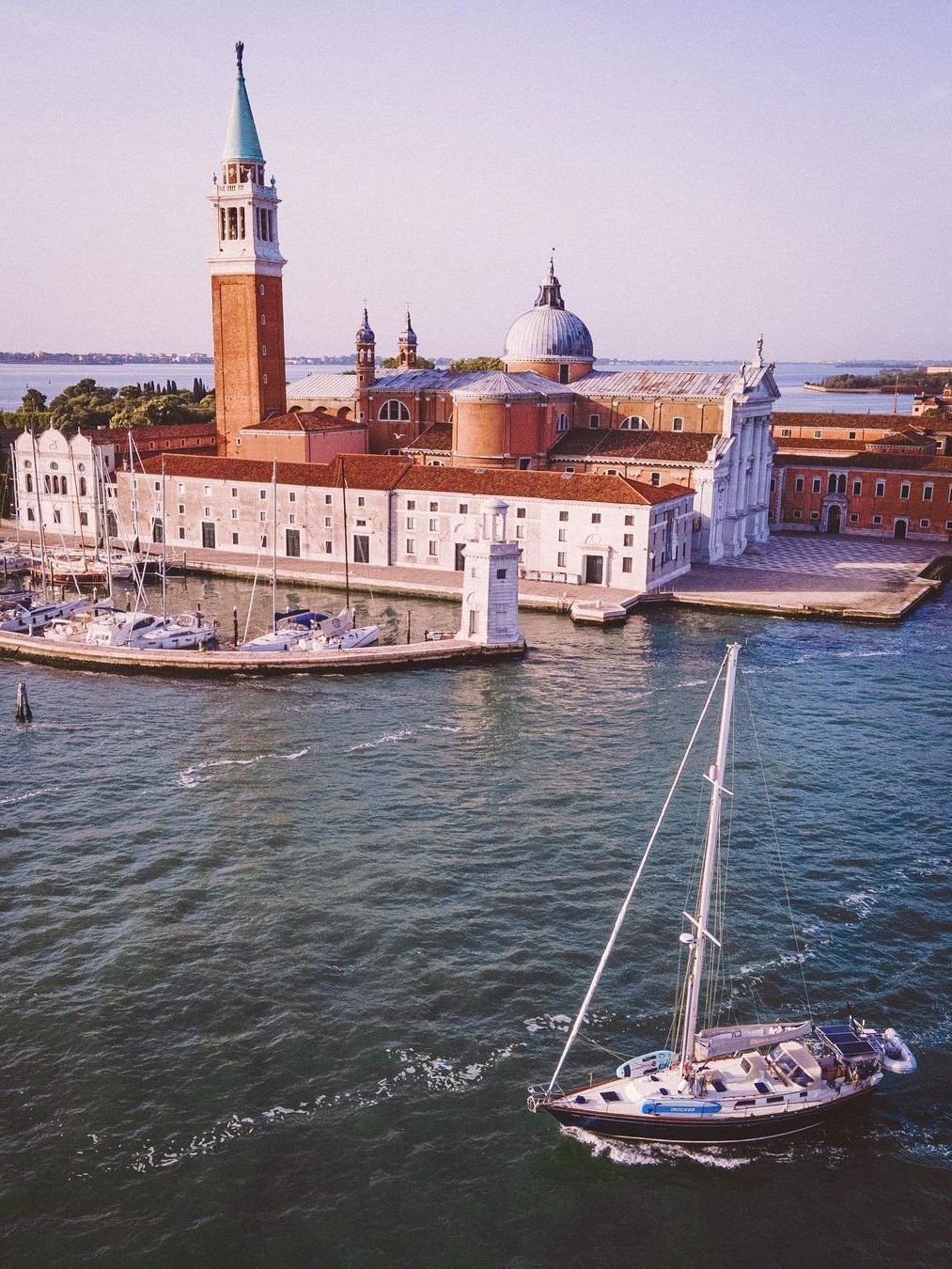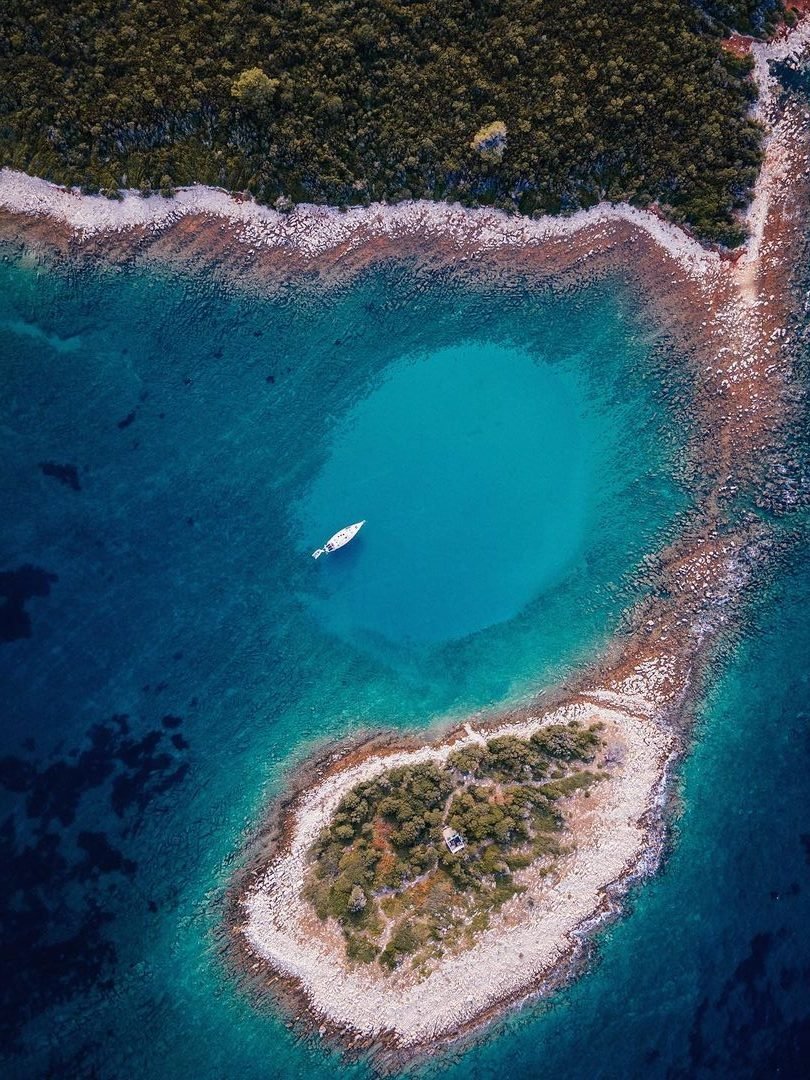how to run an online store from a sailboat (Boatlife stories)
Welcome to Boatlife stories. In this interview series, we talk to liveaboard around the globe about how they made their Boat life dream a reality. In particular, we will look deeper into how they moved on board and are now financing their life on board. We will publish a new story every 2 weeks, so subscribe to our newsletter to avoid missing it.
Today we are talking to Phil and Roxy, who run a online store while sailing the coast of the Mediterranean Sea on their sailboat Sonder.
Please introduce yourselves:
Phil: We are Phil and Roxy on board of Sonder, a monohull 47ft from 1986. In the USVI's, we bought the boat in 2018 in the Caribbean. We did a Caribbean Season, then crossed the Atlantic Ocean, spent a year in the UK in 2020 and 14 months ago, we sailed down to the Mediterranean Sea. We are amazed by the Med, there is so much to explore, and we are enjoying it a lot.
How can you afford to live on a sailboat?
Roxy: Before we bought the boat, Phil was a full-time musician. He produced music, taught music and performed. I worked in a Tech company doing quality assurance in software. In 2013 we started a side hustle selling greeting cards, such as Valentine's, Birthday, or Christmas cards. I found these beautiful greeting cards while teaching English for a year in Hochi Min city in Vietnam and brought them back to the US. We started selling them as a small side business, an arts and crafts thing on the side.
In 2015, PopLife Cards started to grow, and by 2016 we quit our day jobs to fully concentrate on our business. At that time, we already owned a 28ft boat which Phil, who is the original sailor, sailed from NYC to Havana, Cuba. Together we took it to the Abacos, Bahamas, which for the next 3 years became our base for cruising experiences. We lived in Colorado but tried to spend as much time as possible on the boat.
After working on our business full-time, we realised most of the work can be done remotely. The cards are produced and assembled in Vietnam, but we do all the shipping, sales, marketing and design from the US. That was when I convinced Phil we should try the liveaboard life. After spending 9months looking for a boat, we moved on board and quickly realised it definitely affected our business. Suddenly we had a full-time job just maintaining the boat and travelling. It took away a lot of our time from being able to focus on the business, but it still worked. We were able to continue our business and even grow it. Sure everything has been crazy, but overall we have been able to continue.
We design the cards, we do the advertising and marketing all from the boat. We do not have to be in any specific location to do that.
Any secondary boatlife income streams you have?
Phil: We also do custom design Greeting cards for companies or schools. Moreover, through Boatlife and through social media, we got a couple of small income sources, such as writing articles for yachtingworld. More recently, we started being open to paid collaboration and brand partnerships.
How much time do you invest in your online store?
Roxy: Our business is very seasonal. The most stressful time is right before the holidays, such as Valentine's, Mother's day, Father's day, or Christmas. While in the summer when there are no big holidays for greeting cards then it is less busy. In the Mediterranean Sea, the schedule is perfect because we can concentrate on sailing and travelling during the summer when we work around 10-15hours a week and focus on our business in the winter when we work about 40-50 hours a week. In the Caribbean, that was bad because the cursing season and busy business times were overlapping.
What do you need on board to run your liveaboard business?
Roxy: For PopLife Cards, I have paper samples showing the different colors, paper, texture and weights. That's specific to our business.
Phil: We obviously have our laptops for one. Electricity, mainly the inverter to charge the laptops and power the Starlink, which we just got a couple of months ago.
Is Starlink working well on your sailboat?
Phil: Yeah, it's great. It even works well while sailing. Honestly, by this time in 2023, it will probably work worldwide. Right now, all of the Mediterranean Sea is covered, even places off-shore. We crossed the Adriatic from Croatia to Venice and never lost reception, even when we were 30-35nm off-shore. More about Starlink on sailboat here.
Do you have a dedicated office space on board?
Roxy: We probably should, but we don't. We are either in the cockpit or in the saloon. When we first moved on board, I had a laptop stand, a wireless keyboard and a mouse. I thought I would have a formal office, but in the end, I rarely use them. Work kind of just fits in all the places around everything else with boatlife, between moving anchorages or just before breakfast… it's easier to be quick, Just opening the laptop without having a workstation.
Mike: I use the Navigation station a lot. It helps to centre my focus as opposed to being in random places. Or if it is really hot, the hammock I feel, is pretty essential because it keeps the laptop cool. It seems like a minor problem, but honestly, the laptops get so hot when it is on your lap. The hammock helps to dissipate the heat.
So you are in the hammock for the laptop, not for you?
Phil: laughs - It has nothing to do with comfort or style, it is purely heat dissipation.
Speaking about focus and fitting work around boatlife. Would you say that your productivity has been affected?
Roxy: We definitely have not been able to put the same amount of hours in. In general, our focus has moved a lot more to life, travel and relationships. Because besides moving and maintaining the boat we have a lot of friends and family who visit us.
Phil: We do deprioritise our work because of that. It is becoming harder for us to grow, and it is becoming harder to be competitive with similar businesses which operate from land. They do not juggle all the things we do juggle. I think it did have a negative effect, but I am at peace with that idea because I believe we are at the age where we can do this. We get to enjoy this time together with family and friends, which is more important to me. But in an ideal world, we would be able to have both, but it is a balance.
Moreover, we did not have to leave our careers to live on a boat. That's a huge benefit for us regarding the long-term horizon. There are so many sailors for which it makes sense in their career to get one year off, get a boat and do this blitz of a trip. But the whole time they have this finite feeling. They try to fit in everything and don't have the time to enjoy it. They are stressed that their peers are going on with their careers while they have left their job. We do not have that fear. We have the same profession, just doing it at a slightly different pace, making it sustainable. Who knows, we maybe do this for another ten years if we want to. Not sure what we will do, but we do not have this end date.
Challenges you face working from a boat?
Roxy: Besides finding the time? Before Starlink, there was also a problem with internet connectivity. We would use local SIM cards and there were times when it was so slow our productivity was decreased by like 75%. Otherwise, background noises can also be a challenge. Boats constantly move, and either your sheets or the ones of your neighbours might be banging, someone has the generator running, or the wind is howling. Finding a good spot for video calls can be stressful. And then you have all the uncontrollable aspects of boat life. The weather turns bad, the anchor starts dragging, your sailboat neighbours anchor to close, a squall hits, the tide turns, and its starts to get rolly. Those are some of the most stressful aspects of working from the boat.
Speaking of calls do you have team members?
Phil: We have some VAs (Virtual assistants) in different places. One that works part-time with us all year sitting in the Philippines and all of our production staff is in Vietnam. We are used to working in different time zones, which is easier since we are in Europe. I am sure you speak about that in your Bundle as a cautionary point: if your job requires a lot of phone calls, pay attention to which time zone you are moving to because it might turn awkward.
Where will your next sailing routes take you?
Roxy: We are finding more of a balance between the time on the boat and time off the boat. Living on a sailboat in the Mediterranean during winter is no fun. Last year we were in Malta in the marina. Sometimes we stayed on the sailboat, but sometimes we rented an AirBnb or visited family. We really enjoyed that time off the boat because it gave us the excitement to return. I think that is something that stops a lot of people in their boat life. Getting so burned out on the stress, living by the weather, things breaking, just feeling like you don't get enough good sleep. They get so tired of it and they just sell the sailing boat and leave. We want to be able to do this long-term, so we try to find a better balance between land and sea.
Phil: We probably have at least one more season in the Med where we want to go to Greece and Turkey. Afterwards, we do not really know. Eventually, we want to return to the US and the Caribbean. Now with Starlink, it opens up many new possibilities. We always said we can't go to the South Pacific cause there is not enough internet to do our jobs. But soon, they should have Starlink all across the South Pacific. We can easily run our business from there.
Positive sides to working from a boat?
Phil: There are so many positives. I feel like our parents visit us more than they ever did. They think of Sonder as their second home.
Some people would not see that as a positive thing
Roxy: laughs Yeah, we get along well with our parents. We also get to spend a lot of time together compared to when we lived on land.
Phil: I would say the most significant plus about doing boat life the way we are doing it is that we get to move slowly enough that some places feel like home. You get connected. This is an extraordinary thing that people do not get to do unless they travel full-time.
Last tips for someone who wants to run their company from a boat?
Roxy: Be creative. You do not necessarily need to do the thing that you did on land. There is a lot of opportunity for people who live on a boat. Certainly, growing our Instagram has allowed us to write for magazines and work with other brands. We never counted on that at first. It just kind of grew. Be open to opportunities which come along, and be creative in the ways you can make money.
Phil: If you are considering running your company from a boat, it can be daunting. Buying your boat, financing it, moving from home and extracting yourself from the community where you live. It could be a good idea to charter and try it out. Sure it is an extra expense, but if you are working and have the possibility, it is worth trying it out.
Roxy: Or buy a smaller boat and test it out. Because if you can handle it on a smaller boat and enjoy it you will be able to do it on a bigger boat and enjoy the luxuries of a bigger boat. Even if a bigger boat means bigger problems. But for us, the small boat convinced me that cruising is what we wanted to do.



